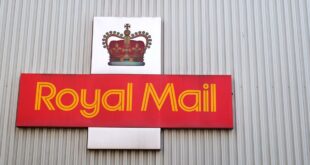Royal Navy HQ is closed for decontamination after bacteria that causes deadly Legionnaire’s Disease is found in the water system
- The main part of Navy Command headquarters has shut while bacteria is treated
- The First Sea Lord is among the staff based at the building on Whale Island
- Potentially deadly Legionella bacteria found in the water system of the building
Part of the Royal Navy’s headquarters has been forced to temporarily close after potentially deadly Legionella bacteria was found in the water system.
Leach building, the main part of Navy Command headquarters (NCHQ) in Portsmouth Harbour, is understood to have shut while the bacteria is treated and flushed out.
Legionella causes Legionnaires’ disease, which is fatal in 10 per cent of cases.
The First Sea Lord – the head of the navy – is among the staff based at the building in HMS Excellent on Whale Island in the Hampshire port city.
No staff are thought to have fallen ill or reported symptoms so far.
Leach building (pictured), the main part of Navy Command headquarters (NCHQ) in Portsmouth Harbour, is understood to have shut while the bacteria is treated and flushed out
A Royal Navy spokeswoman said: ‘A building in HMS Excellent, Whale Island has been temporarily closed after legionella was detected. Cleaning is ongoing to ensure the safety of the water supply.
‘There has been no impact on Royal Navy operations.’
It comes a day after legionella was detected in parts of the water supply at the Ministry of Defence’s Abbey Wood site in Filton, Bristol, which houses its Defence Equipment and Support (DE&S) organisation.
No members of staff had reported symptoms there either.
In May, Public Health England warned businesses should flush out the hot and cold water supply in their buildings before reopening to prevent the bacteria – which is naturally present in water systems – from spreading.

The First Sea Lord – the head of the navy – is among the staff based at the building in HMS Excellent on Whale Island in the Hampshire port city. Pictured, The Royal Navy aircraft carrier HMS Queen Elizabeth leaves Portsmouth Harbour on April 29
There were fears that because water systems may have stopped running in buildings temporarily shut at the height of the coronavirus pandemic, the chances of the bacteria forming would increase if no action was taken, particularly during the warmer months.
The bacteria multiply when the temperature of water is between 25C and 50C or if there is poor or no flow into the system.
It can cause serious illnesses in people over the age of 50, smokers and those with underlying health conditions.
Source link


